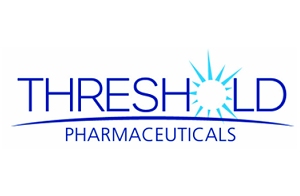 Earlier this month, Threshold Pharmaceuticals, a development-stage biopharmaceutical company announced the initiation of an international 440-patient, double-blind, randomized and placebo controlled trial using TH-302 for the treatment of advanced non-squamous non-small cell lung carcinoma (NSCLC). Lung cancer is the second most common cancer in both men and women, accounting for about 13% of all new cancers and 27% of all cancer deaths. Approximately 85% of all lung cancers are diagnosed as NSCLCs, 70-75% of which are histologically classified as non-squamous.
Earlier this month, Threshold Pharmaceuticals, a development-stage biopharmaceutical company announced the initiation of an international 440-patient, double-blind, randomized and placebo controlled trial using TH-302 for the treatment of advanced non-squamous non-small cell lung carcinoma (NSCLC). Lung cancer is the second most common cancer in both men and women, accounting for about 13% of all new cancers and 27% of all cancer deaths. Approximately 85% of all lung cancers are diagnosed as NSCLCs, 70-75% of which are histologically classified as non-squamous.
This new experimental drug specifically targets hypoxic (low oxygen) regions of tumors that usually contain the most mutagenic cell types within the tumor microenvironment commonly causing resistance to traditional therapies, like chemotherapy and radiotherapy. What distinguishes Th-302 from other drugs is that it is a prodrug, which means that it remains inactive in the body until it comes across hypoxic conditions where it is activated and releases a DNA alkylating agent that prevents cancer cells from replicating and growing. This unique way of action by TH-302 results in fewer cytotoxic side effects to normal tissues.
In this Phase 2 clinical trial, TH-302 will be evaluated in combination with pemetrexed for NSCLC and fully dosed pemetrexed with placebo versus fully dosed pemetrexed with 400 mg/m2 TH-302 will be compared. The primary endpoint has been defined as overall survival with progession-free survival and safety as secondary endpoints. Existing therapies result in a median progression-free survival of approximately three to four months with median overall survival oscillating between eight to 10 months.
In the company’s previous Phase I/II clinical trials, TH-302 in combination with full-dose pemetrexed administered to 18 patients suffering from NSCLC resulted in a median progression-free survival of 7.0 months and median overall survival of 14.9 months, with 40% of patients achieving a partial response, 40% achieving a stable disease state and 20% developing progressive disease.
Threshold’s chief executive Barry Selick, Ph.D, stated “independent studies have demonstrated the presence of hypoxia in tumors from patients with NSCLC. Early clinical research conducted by Threshold also supports further evaluation of TH-302 in combination with pemetrexed as a potential second-line treatment for patients with non-squamous NSCLC, many of whom still face a poor prognosis because of limited treatment options.”
In addition to this trial, TH-302 is also being evaluated in two ongoing pivotal Phase III clinical trials in pancreatic cancer and soft tissue sarcoma. The pancreatic cancer trial is ongoing, and primary data for the soft tissue sarcoma is likely to come out in 2015, with a potential FDA approval in late 2016. TH-302 is also in early stage clinical trials in various other types of cancers, such as advanced melanoma, multiple myeloma, astrocytoma, leukemia, and other solid tumors.
Furthermore, in addition to TH-302, Threshold acquired the rights to [18F]-HX4, a Positron Emission Tomography (PET) imaging agent with the potential to quantify the level of hypoxia in real time in patients’ tumors making it a potential diagnostic indicator for the use of TH-302 and also for monitoring the therapeutic response of TH-302 in patients.
Threshold has teamed up Merck KGaA to co-develop TH-302, and if this Phase II study proves successful, TH-302 could become the next viable treatment for NSCLC, as well as potentially revolutionize the current state-of-the-art therapies for hypoxic tumors.
